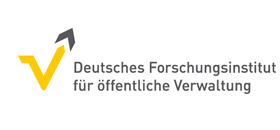Can parliament govern the transport transition? How the German Bundestag scrutinizes rail projects
- The paper aims to elucidate to what extent the German Parliament exerts control over rail planning. Parliament has the budgetary right, but information asymmetries vis-à-vis the railway company Deutsche Bahn and the Ministry of Transport make parliamentary control difficult. Recently, Germany has instituted a parliamentary review process that allows the Parliament to take up concerns by the public affected by rail projects. We use the principal-agent theory to model this new institution. Parliament delegates rail planning to the Deutsche Bahn, while the Federal Railway Authority serves as a budget watchdog, and parliament uses input from public participation as a deck-stacking procedure. The paper first situates the institutional innovations—the new parliamentary oversight procedure—against the former logic of rail-way planning. Second, based on the documentation of parliamentary oversight, we analyze for which demands by the affected public the Parliament uses its power to change rail projects. The paper showed that public participation matters. The German Parliament introduced expensive changes to rail projects. In particular, demands that had been voiced in well-institutionalized public participation (that is, when municipalities, regional associations, etc., were engaged in long-term institutionalized dialogues with the Deutsche Bahn) were more likely to be addressed. An Extra budget was then allocated to, for example, noise-regulating measures. To sum up, the German Parliament uses information gained in public participation in com-bination with its budget rights to exert control over railway planning for conflictual projects. Thus, Parliament takes a more active role in railway planning. Whether this also leads to more acceptance for rail projects, is an open question.
| Author: | Felix Julian Koch, Jenny Rademann, Simon Fink |
|---|---|
| URL: | https://energsustainsoc.biomedcentral.com/articles/10.1186/s13705-022-00346-4 |
| DOI: | https://doi.org/https://doi.org/10.1186/s13705-022-00346-4 |
| ISSN: | 2192-0567 |
| Parent Title (English): | Energy, Sustainability and Society |
| Volume: | 12 |
| Publisher: | Springer |
| Place of publication: | Berlin |
| Document Type: | Contribution to online periodical |
| Language: | English |
| Year of Completion: | 2022 |
| Date of first Publication: | 2022/05/05 |
| Publishing Institution: | Deutsches Forschungsinstitut für öffentliche Verwaltung |
| Release Date: | 2022/06/27 |
| Reviewed Document?: | Ja |
| Online-Document?: | Ja |
| Article Number: | 18 |
| Documents of the German Research Institute for Public Administration (FÖV): | Sonstige Schriften |
| Access Rights: | Frei zugänglich |
| Licence (German): |  Urheberrechtlich geschützt Urheberrechtlich geschützt |
| Licence (German): |  Creative Commons - CC BY - Namensnennung 4.0 International Creative Commons - CC BY - Namensnennung 4.0 International |



